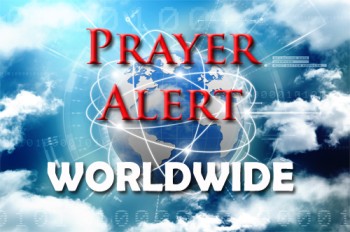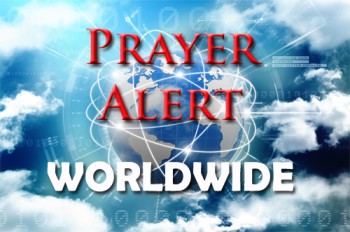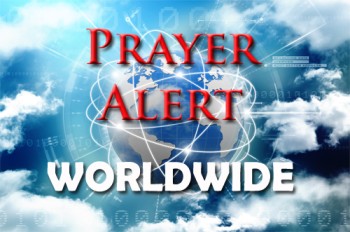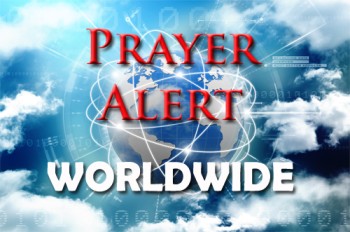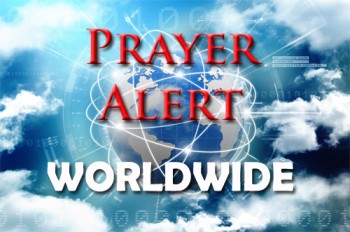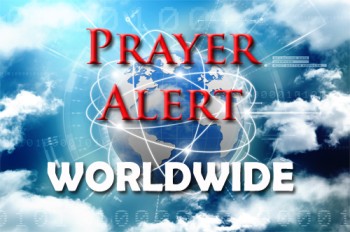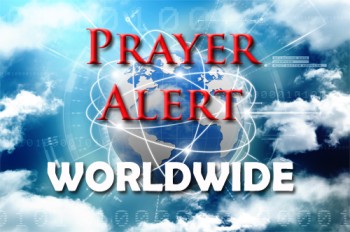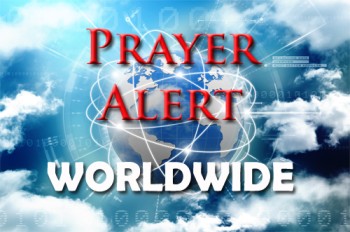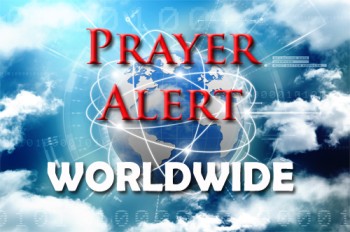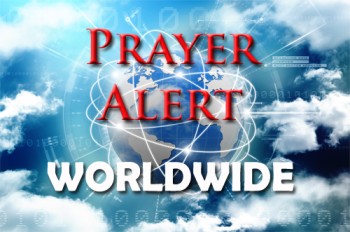Displaying items by tag: starvation
Gaza: desperate crowd storms UN warehouse, food aid still a trickle
A UN warehouse in Gaza has been stormed by desperate civilians amid growing hunger and aid shortages, resulting in two deaths and several injuries. The World Food Programme warned of impending famine, urging immediate aid expansion. Though Israel has lifted an eleven-week blockade, only limited aid has entered via the UN and the US-backed Gaza Humanitarian Foundation (GHF). The UN criticised Israel’s aid efforts as grossly inadequate, likening them to ‘a lifeboat after the ship has sunk’. Ongoing Israeli strikes, including the killing of Hamas leader Mohammad Sinwar, killed at least thirty people on 28 May. Israel, facing international pressure, is insisting aid be routed through the GHF, but the UN and other charities are refusing to do so because they do not see it as neutral. The GHF has so far distributed over 840,000 meals; reports say that at one site 47 people were injured in a rush for food. Humanitarian groups continue to warn of systemic deprivation and the collapse of basic aid infrastructure in Gaza.
Ethiopia: nearly 400 have died of starvation
Ethiopia's national ombudsman has revealed that nearly 400 people have died of starvation in the Tigray and Amhara regions in recent months. Local officials had previously reported such deaths, but the federal government had denied these claims. The UN and the USA had suspended food aid in Tigray and Ethiopia after discovering a ‘large-scale’ scheme to steal humanitarian grain. but lifted the pause in December after implementing reforms. However, Tigray authorities claim that food is not reaching those in need, citing technical issues and funding shortages. Only 14% of the 3.2 million people targeted for food aid in Tigray had received it by 21 January. The Tigray Food Cluster, a group of aid agencies, has urged immediate scaling up of operations to prevent severe food insecurity and malnutrition, particularly among vulnerable children and women. Approximately 20.1 million people across Ethiopia require humanitarian food assistance due to drought, conflict, and economic challenges.
Haiti: city taken hostage by gangs
In Port-au-Prince your life depends on knowing where the boundaries are. Competing gangs are claiming areas, kidnapping, raping, killing at will and demarcating territories in blood. Cross from one gang's turf to another, and you may not return. Armed groups terrorise 60% of the capital by controlling roads. 1,000 people were killed between January and June. The last head of state was killed in office, creating a vacuum; there is no functioning parliament , and the US-backed unelected prime minister is unpopular. Half the population face acute hunger, 20,000 face famine-like conditions and cholera, but gangs are the greatest plague. Morning and evening rush hours are kidnapping times as commuters are snatched from the streets in a growing industry. Ransoms range from £164 to £820,000. Most victims return if ransoms are paid, but they suffer: rape, burns by melted plastic, and more. Catholicism is the official religion, but voodoo is the national religion. The majority of Haitians practise some aspects of voodoo.
Afghanistan: 'I drug my children to help them sleep'
In the second winter since the Taliban took over and foreign funds were frozen, millions are a step away from famine. Abdul says, ‘Our children keep crying; they can’t sleep. We have no food. So we go to the pharmacy to get them tablets to make them drowsy.’ Ghulam has alprazolam tranquilisers in his tunic - they are used to treat anxiety disorders. Others are giving tablets which treat depression and anxiety. Doctors say that when given to young children who do not get adequate nutrition, these drugs cause liver damage, chronic fatigue, and behaviour disorders. Five tablets cost ten Afghanis, the price of a piece of bread. Ammar had surgery to remove his kidney to repay money borrowed to buy food for his family. ‘I sold my five-year-old daughter for 100,000 Afghanis,’ Nizamuddin says. ‘That's less than half what a kidney goes for.’ He bites his lip, and his eyes well up.
Somalia: drought and deaths
11-year-old Dahir's brother died of hunger. His two sisters are fighting sickness and malnutrition caused by drought. Authorities want the international community to recognise the crisis as a famine. ‘I'm worried about my sisters. I wash them. I wash their faces’, says Dahir, glancing at six-year-old Mariam, coughing hoarsely and complaining of headache, and four-year-old Malyun, lethargic with sunken eyes. Measles and pneumonia are rampant, killing many younger children with immune systems weakened by malnutrition. At hospitals’ intensive care wards, doctors and nurses insert fluid drips into emaciated infants' arms and oxygen tubes into tiny nostrils. Children's limbs are dark and blistered as if severely burnt - a painful reaction to prolonged starvation. The hospital's head doctor said, ‘The world is paying attention to Somalia's drought now. We see visitors from international donors. But that doesn't mean we are getting enough support. I hope it will come soon. It is a desperate situation.’
Kenya: food crisis
‘Our efforts have been fruitless,’ said a Christian farmer in northern Kenya. ‘Wild animals are invading our farms and eating everything - hippos, elephants, buffaloes. Families have been struggling with nothing to eat.’ This is another problem added to the prolonged drought biting ever deeper. Crops fail, livestock perish, and the all-important water source, the Tana River, dwindles and dries up. Children in northern Kenya have already begun to die of hunger. Barnabas Aid is continuing to feed Christians in that area, where our fellow-believers are a minority and do not get help from the main aid agencies in the area. The rainy season, October to December, is forecast to be short and light across most of the country.
Somalia: brink of starvation
For three decades Somalia has lurched between disorder and anarchy. The government controls only bits of the country. The rest is in the hands of al-Shabab jihadists adept at blowing themselves up in crowded places. For many Somalis life is poor, brutish, and short. They live in the world’s fifth poorest and eighth most violent country. Their life expectancy is the sixth lowest. Droughts and floods add to the misery. In 2011 failed rains contributed to the worst famine of the 21st century: more than 250,000 people died, half of them children. A decade later history may repeat itself. The worst drought in four decades is wilting crops and killing livestock. On 5 September government officials said an even greater catastrophe could sweep the country within days or weeks unless more help arrives. Over 18 million people can’t find enough to eat; children are dying. Pray for hospitals to have enough nutritional supplements for children. See also
Kenya: drought-hit north needs food
This is one of the hardest times Kenyans have experienced. Four rainy seasons in a row have failed. The government declared a national disaster after only two consecutive failed rainy seasons. Since then, the short rains and the long rains have both failed again. Water is hard to find; cattle are dying. Even camels struggle to survive. The World Food Programme says half a million Kenyans could starve. Prolonged hunger and malnutrition have made people prone to disease: their weakened bodies can’t resist infections. In Muslim-dominated areas, Christians are usually left out when government food relief is distributed. Families used to earn their living as casual labourers or through small businesses, but normal life has ended with the catastrophic drought and famine which followed a series of other disasters.
China: starving through lockdown
Authorities are cracking down hard to make China Covid-free ahead of the Winter Olympics. In a Maoist-style shaming stunt, four violators of Covid rules were paraded through Jingxi city wearing hazmat suits, with placards showing their names and photographs round their necks and surrounded by armed police in riot gear. At Christmas, China imposed a lockdown on Xi'an city (population 13 million) and Yuzhou city (1.2 million inhabitants) after finding three cases of Covid. Residents cannot leave home, even to buy food. Government workers have been distributing aid, but the distribution is patchy, resulting in many desperate stories leaking onto social media of residents near to starvation, bartering mobile phones for food. Some people are living on one egg or one bowl of porridge a day. 'I'm about to be starved to death,' was one message. Recently authorities turfed a thousand people out of their homes at midnight and carted them off to grim quarantine facilities. See
Afghanistan: starving and freezing
The start of a harsh winter is accelerating Afghanistan’s humanitarian crisis. Since the Taliban’s seizure of power, and international sanctions, the economy has gone into freefall. The collapse of the previous government and the withdrawal of Western support have led to soaring unemployment. Few can afford to feed their families or heat their homes. One million children are at risk from severe malnourishment. The UN has now issued an urgent call for aid for the country, stating that 22 million people inside Afghanistan and a further 5.7 million displaced Afghans in neighbouring countries need vital relief this year. ‘A full-blown humanitarian catastrophe looms. My message is urgent: don't shut the door on the people of Afghanistan,’ said UN aid chief Martin Griffiths. ‘Help us scale up and stave off wide-spread hunger, disease, malnutrition, and ultimately death.’
